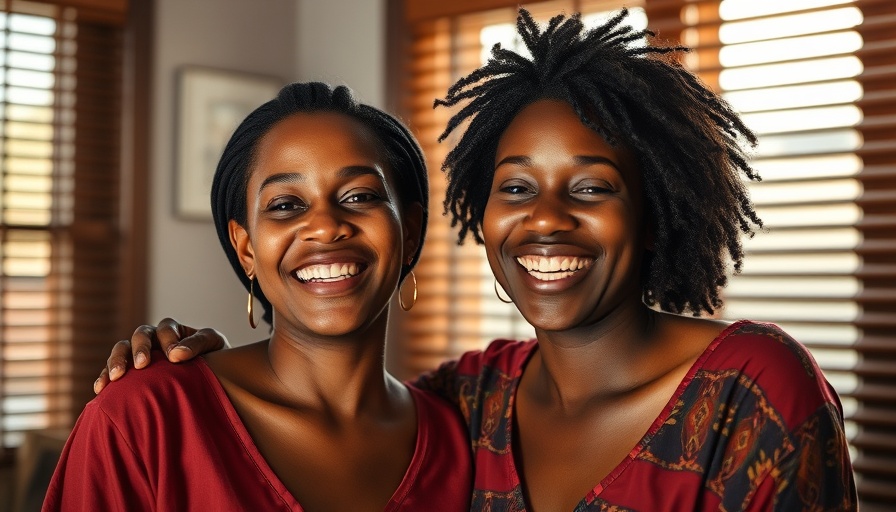
Exploring Nigerian Narratives: The Impact of Economic Challenges
In light of the recent video titled "Are you mad to be looking for love in this economic climate? Should your focus not be focused??", we dive into a compelling discussion that resonates with many in Nigerian society today. At the heart of this conversation are the changing dynamics of love and relationships against the backdrop of economic uncertainties. As the video points out, many individuals are now prioritizing personal growth and financial stability over romantic pursuits. This shift speaks volumes about the realities faced by Nigerians who are navigating through tough times.
In the video 'Are you mad to be looking for love in this economic climate? Should your focus not be focused??', the discussion dives into how the economic realities affect love and relationships, providing insight that prompts deeper analysis on our end.
The Realness of Community Reflected in Storytelling
The creators of the series “Most Girl” have a knack for weaving Nigerian experiences into relatable narratives that resonate deeply with the audience. The conversation highlights how the characters in this beloved series mirror the struggles of everyday life, creating a shared sense of understanding in a time of economic distress. As viewers watch, they see reflections of their own lives, prompting a sense of belonging and community which is often hard to come by in challenging times.
Navigating Love and Ambition: A New Perspective
In this economic climate, focusing on career ambitions appears more sensible than pursuing fleeting romances. The protagonists in “Most Girl” grapple with the same tensions, choosing to prioritize their individual aspirations over romantic pursuits, as echoed by the show's creator, Bolaji Kekere-Ekun. This shift from 'toasting' – the local term for courting – to a focus on personal and professional development is indicative of a broader societal trend. It emphasizes the movement toward self-sufficiency and empowerment among African women filmmakers and their stories, which increasingly showcase aspiring narratives that affirm strength, ambition, and resilience.
Community Support in the Realm of Filmmaking
As the Nigerian cinema evolves, it's essential to support African women filmmakers who are telling these authentic stories. Bolaji Kekere-Ekun's work, produced by 37th State LTD, exemplifies how personal stories can spark collective conversations and foster community connections. Engaging with and supporting such creators can inspire many others to embrace their narratives as they reflect the multifaceted experiences of contemporary Nigerian life.
Where Do We Go From Here?
The transformation showcased in both characters and their journeys in “Most Girl” invites viewers to reflect on their paths. The landscape of love may shift, but awareness and adaptability remain crucial. As individuals learn to redefine what is important to them, whether it be love or career success, they pave the way for richer and more fulfilling lives. There’s no denying that love remains a beautiful venture; however, aligning it with personal goals in an ever-evolving economic environment sets the stage for deeper human connections.
A deeper understanding of the artistic visions created by filmmakers like Bolaji Kekere-Ekun can be further nurtured by participating in the vibrant discussions surrounding these works. Join the dialogue by watching “Most Girl” and share your thoughts on navigating love in challenging times. Engaging with the wider community not only inspires filmmakers but could also enrich your perspectives on life and relationships.
 Add Row
Add Row 

 Add
Add 


 Add Row
Add Row  Add
Add 

Write A Comment